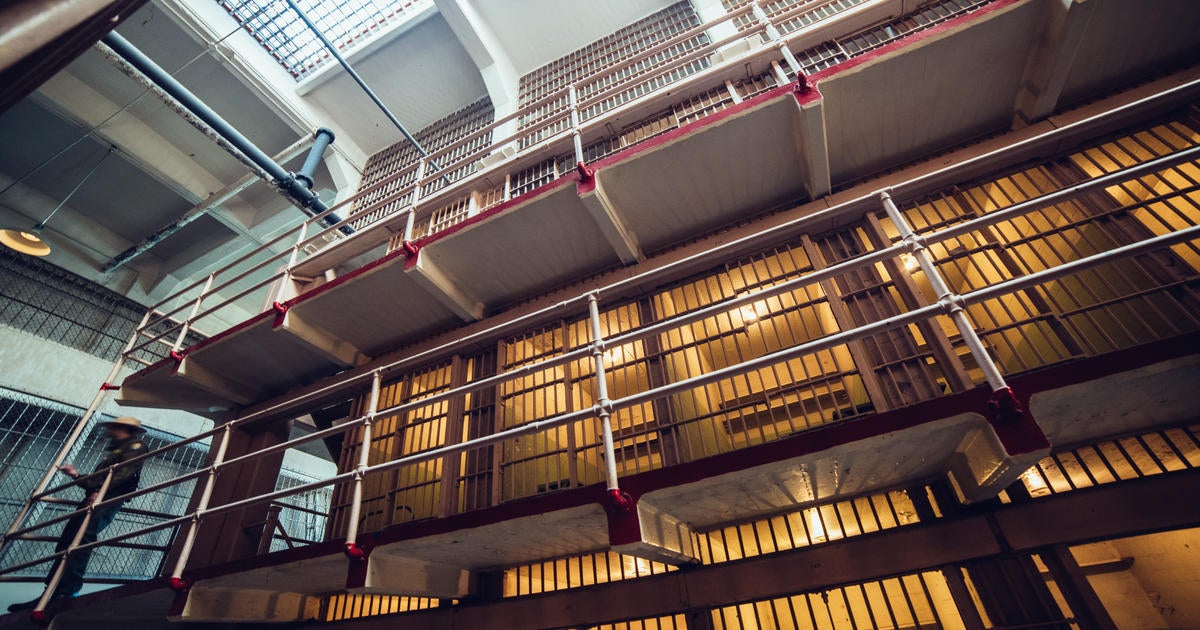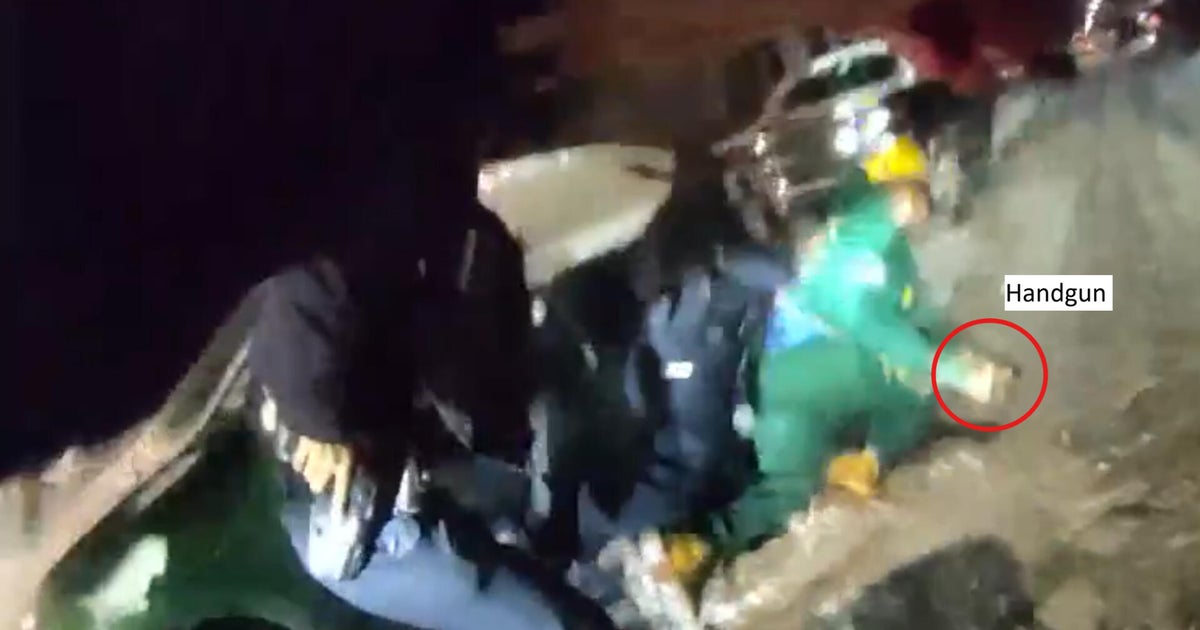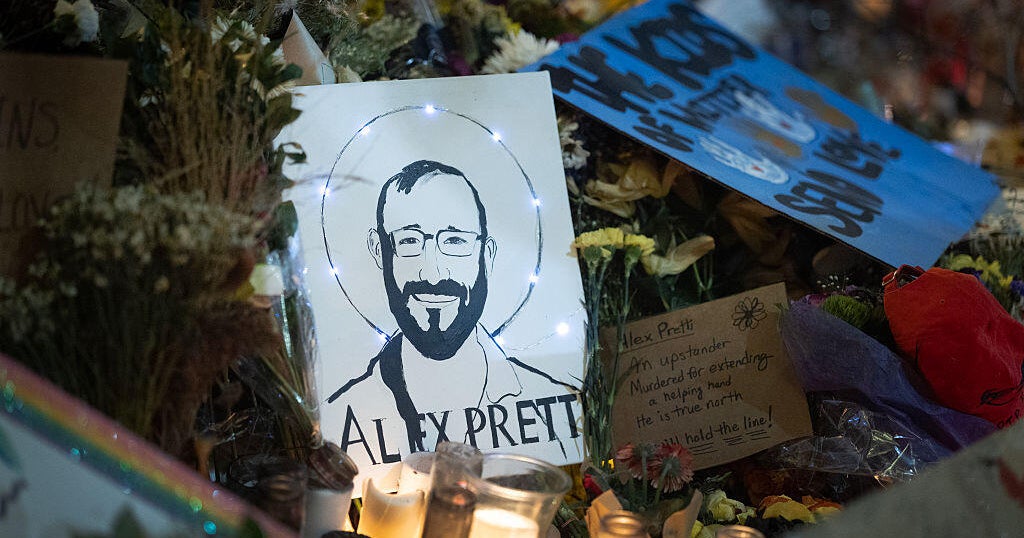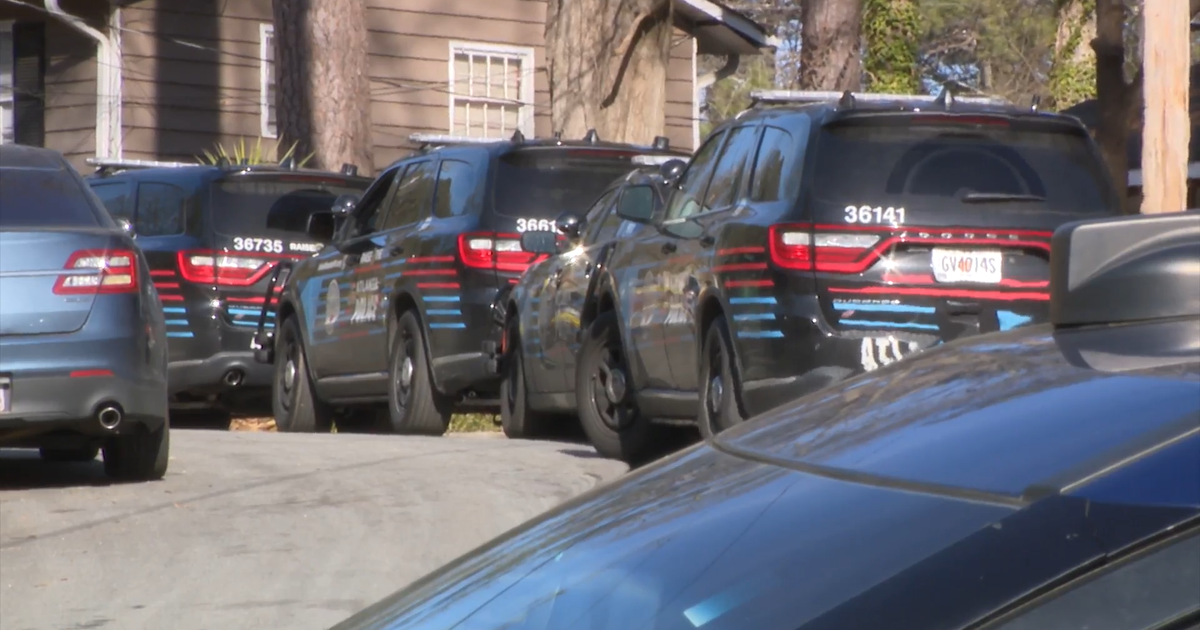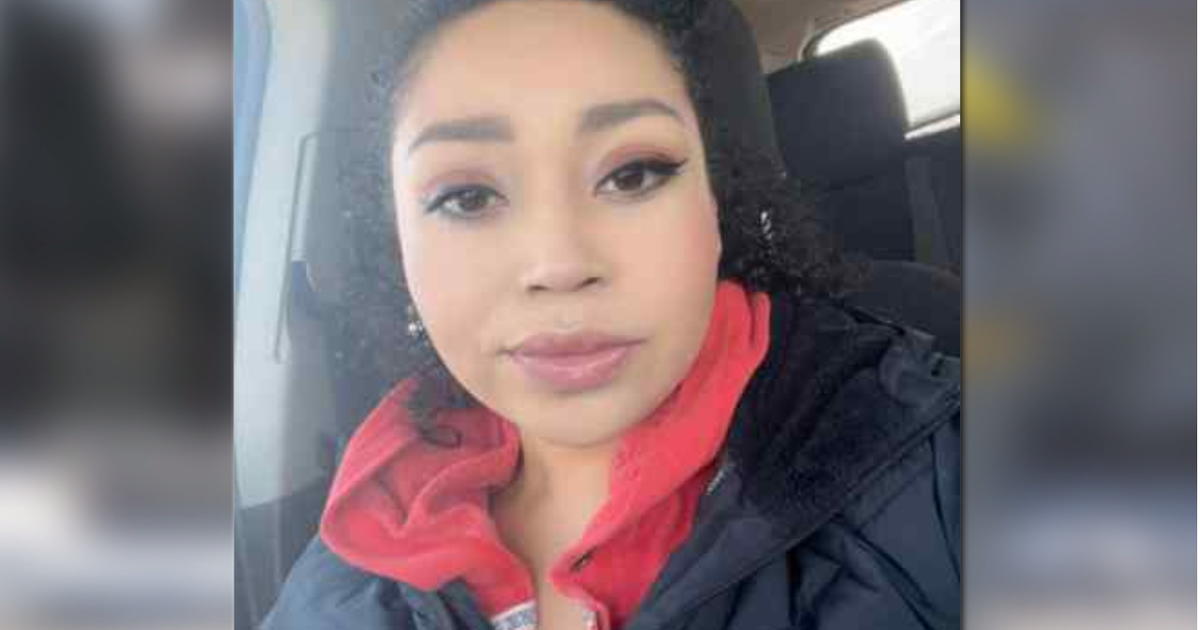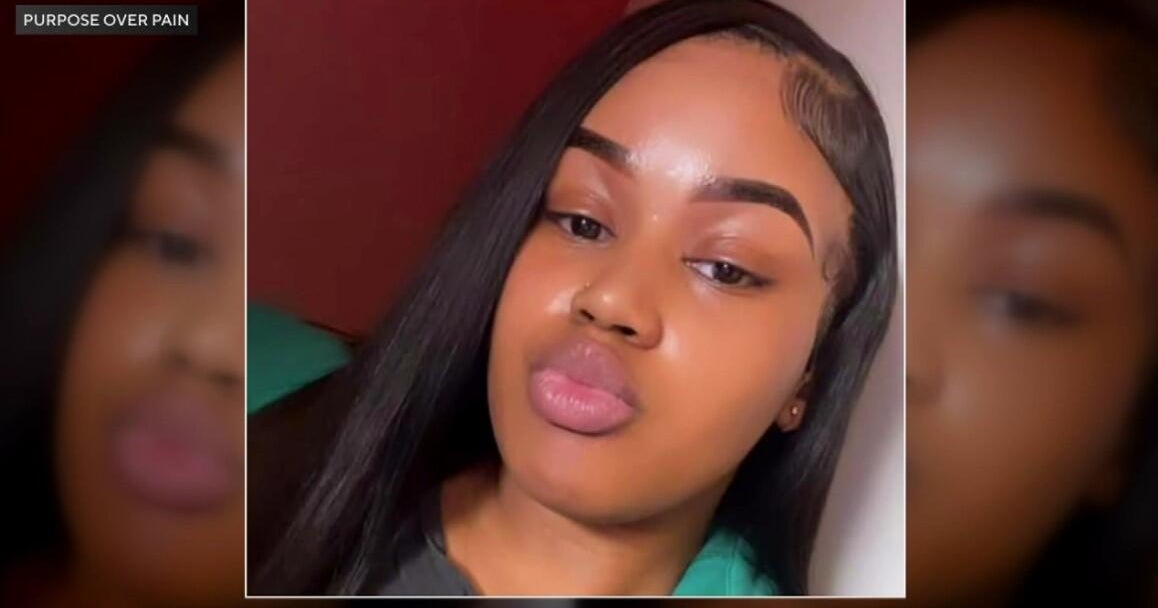COPA Report Concludes CPD Officer Patrick Kelly Shot Friend Michael LaPorta, Lied About It For Nearly 10 Years
CHICAGO (CBS) -- An explosive new report accuses a Chicago Police officer of pulling the trigger on a friend – and lying about it for nearly a decade.
It has been a long fight for justice for Michael LaPorta, who was shot in the head almost 10 years ago, in what police say was a suicide attempt. CBS 2 Investigator Dave Savini has been investigating this case for years, and was the first to report on the Civilian Office of Police Accountability's finding that it was actually a CPD officer who shot LaPorta, and then tried to cover it up.
Meanwhile, Chicago Police Supt. Eddie Johnson has known for months that the report says Kelly should be fired. But Kelly is still on the force, and there is no sign that any action has been taken.
Kelly was pulled to work on desk duty in 2017, but he has still been paid as an officer all along.
"I can't understand why it took so long," said Patti LaPorta. "I mean, Mikey lost 10 years of life."
Mikey is Patti LaPorta's son. She said he has had to undergo nine surgeries.
MAIN TAKEAWAYS: COPA Report On CPD Officer Patrick Kelly And The Shooting Of Michael LaPorta
Mikey LaPorta was shot in the head in 2010. He says Chicago Police officer and childhood friend, Patrick Kelly, fired the bullet.
Kelly and LaPorta had been out drinking the night LaPorta suffered the near-fatal wound. The CBS 2 investigators have learned the Civilian Office of Police Accountability now believes Kelly was the shooter and is recommending he be fired.
"This is a bad cop," Patti LaPorta said.
RELATED: City Expected To Challenge $44.7M Verdict In Rogue Cop Case | Jury Awards $44.7 Million To Man Shot At Chicago Cop's House | Cop Takes The Fifth During Civil Trial | Sued Cop's History Includes Firing 11 Bullets At Suicidal Suspect | Woman Has Miscarriage After Being Tased By Chicago Cop | Police Reopen Investigation Into Shooting At Cop's Home
CBS 2 obtained a 74-page report, in which COPA says evidence showed Kelly pulled the trigger and then "gave false statements" to detectives investigating the shooting – trying to make it look like a suicide attempt. The report was finalized at the end of June.
[scribd id=425015353 key=key-xi79tMCyS5NF15Xeebpw mode=scroll]
The report said on Jan. 12, 2010, police were called to Officer Kelly's home and found LaPorta – whose name is redacted in the report – with a gunshot wound to the head.
Kelly claimed LaPorta had shot himself with the officer's gun in a suicide attempt.
LaPorta suffered a traumatic brain injury and spent two months in the hospital and two more at the Rehabilitation Institute of Chicago. He was unable to speak and thus could not provide an account of what happened once he regained consciousness, the report said.
The former Independent Police Review Authority – which COPA replaced in 2017 – made seven allegations of misconduct against Kelly. Five were sustained, but the questions of whether Kelly shot LaPorta and whether he gave false statements about it were not resolved, the report said.
LaPorta's family also filed a civil lawsuit against Kelly and the city in October 2010. A federal jury ruled in LaPorta's favor, awarding him $44.7 million in damages.
After the IPRA investigation closed, LaPorta did regain some ability to communicate and reportedly began having memories of the incident – specifically that he didn't shoot himself and had not been suicidal, the report said.
COPA later launched a new investigation that included some new interviews and depositions with witnesses.
The report related that in a deposition on May 4, 2012, Kelly said sometime after 10 p.m. on Jan. 11, 2010, Kelly and LaPorta were at Kelly's house following a night of bar-hopping. Kelly claimed that LaPorta went into Kelly's bedroom where the officer kept his gun in a nightstand – and Kelly saw him through the door holding the gun in his left hand and aiming it at his left temple.
Kelly claimed he went to grab the gun from LaPorta and it discharged.
Kelly also reported a suicide attempt by LaPorta when he called 911. Responding officers just took his word and failed to investigate it as a possible crime, as they would with any other shooting, the report said.
At first, Kelly thought LaPorta was already dead. But then during the call to 911, LaPorta started to breathe.
LaPorta had different recollections about the same night. LaPorta told investigators that Kelly had been punching and yelling at his own dog, which led LaPorta first to complain and quarrel with Kelly, then to decide to leave, the report said.
LaPorta was afraid Kelly was going to shoot something, "like a wall or something like that," and said he flinched as he prepared to leave. He said he did not see a gun before being shot, but said he knew Kelly had a gun and usually kept it in his waistband, the report said.
In an interview with COPA on Jan. 25, 2018, LaPorta likewise said he got into a quarrel with Kelly because Kelly hit his dog. LaPorta said Kelly pushed him and he couldn't remember if he pushed back, but he said he was leaving. He again said he flinched because he thought Kelly was shooting the wall, then felt Kelly shooting, the report said.
LaPorta told investigators his next memory was of being in the hospital, and said he did not know initially that he had been shot, the report said. He said before the incident, he was happy and never thought of suicide, the report said.
Others also testified that LaPorta was right-handed, despite Kelly's claim that LaPorta had held the gun to his own head with his left hand.
"Based on the review of the available evidence, it is more probably true than not that Officer Kelly shot (LaPorta), without justification on January 12, 2010, in violation of the Chicago Police Department's Rules and Regulations. A discussed below, while (LaPorta's) condition post-injury has affected his memory about the moments leading up to the shooting, COPA finds his testimony about not being suicidal to be credible," the report said. "Officer Kelly's multiple objectively false statements about the events of the night coupled with his intoxication make him not credible."
The report said various objective circumstances discredit Kelly's account. Among them was physical evidence that the gunshot wound could not have been self-inflicted, the report said.
COPA did not address further claims against Kelly on the night of the incident that were detailed by its predecessor agency IPRA.
In that incident, fellow officers alleged that he was drunk when they came to his house at 4:39 a.m. after LaPorta was shot, and that he had failed to secure his firearm. The IPRA report alleged that Kelly told the officers LaPorta had shot himself with Kelly's service weapon.
The IPRA report went on to say Kelly demanded to ride in the ambulance with LaPorta, and refused when Sgt. Charmane Kielbasa told him to step away from the ambulance. He allegedly went on to become irate with Kielbasa to the point where he called her profane names and came after her with swinging arms, the report said.
Kelly was arrested at that point -- though only in connection with the alleged drunken outburst, not the LaPorta shooting. IPRA ultimately sustained complaints against him that he was drunk while off duty, failed to secure his weapon, and was both insubordinate and unprovoked in his conduct toward Sgt. Kielbasa.
The LaPortas blame many others in the Chicago Police Department for protecting Kelly, and the COPA report does too. The earlier IPRA documents in the report say a responding lieutenant had been instructed a sergeant "to handle the scene as if Officer Kelly had discharged his weapon."
But COPA found the investigation was not treated as a would-be homicide form the outset, and the report says detectives tried to convince LaPorta's family and friends to go along with Kelly's version claiming LaPorta attempted suicide.
The report further said Kelly made false statements about many other things – denying that he was drunk and that he attacked anyone when the ambulance and the on-duty officers came after the shooting.
When asked about the report, Michael LaPorta Sr. said, "Finally, somebody's doing their job."
"There are so many good cops out there – so many. But the ones who are bad – you look at the damage that they do to this city, its reputation, and its budget," said attorney Tony Romanucci, who represents the LaPorta family. "Get rid of the bad cops."
Romanucci filed the lawsuit against the city and Kelly on the Laportas' behalf. Among the evidence was how police questioned Kelly after the shooting.
"All right, I did nothing wrong, but I'm telling you what I want," Kelly says in video of the questioning. "I still have rights. I may be a police officer, but I have f***ing rights."
Kelly asked for his father, and for some reason, detectives then ask if his father is also a cop.
"Was your father police?" the detectives ask. Kelly replies, "He was," but is not anymore.
Rommanuci also points to the city's failure to terminate Kelly before and after LaPorta's shooting, given his dozens of misconduct allegations.
For years, Kelly repeatedly declined to talk. One time he even ran when CBS 2 tried to question him about the shooting – or those other misconduct cases while responding to police calls.
In 2014, while on duty, Kelly is accused of wrongfully shooting Hector Hernandez to death.
Hernandez's girlfriend said he was having a mental breakdown and threatened to harm himself with a knife.
She said Officer Kelly was one of two officers who opened fire. IPRA records, claim Hernandez lunged at police with a knife and Kelly fired 11 times until his gun jammed.
A year earlier, in 2013, he was accused of wrongfully using a Taser on Elaina Turner.
"I look down and I have a Taser in my belly, then I get two more in arms," Turner said.
Turner said in 2013, Kelly threatened to tow her vehicle. And when she tried to get her child's car seat, Kelly got angry and deployed his Taser. Turner was pregnant, and had a miscarriage a couple of days later.
That happened three years after the incident involving LaPorta.
Turner's case settled for $500,000. The Hernandez lawsuit is pending.
"A man died," said Patti LaPorta. "Turner, she lost her baby."
"One day, they need to name a hurricane after Patrick Kelly and call it Hurricane Kelly, because this officer, since he started in the department, has left, literally, a path of destruction," Romanucci said.
"The right thing to do? We get justice. He gets criminal charges," Patti LaPorta added.
In addition to wanting him terminated, the LaPortas want the Cook County State's Attorney to charge Kelly criminally.
"Our investigations are based entirely on the facts and evidence and we were fortunate to have important and critical evidence which was not available before," said COPA Chief Administrator Sydney Roberts. "In every investigation we seek for relevant information that can assist in a fair, objective investigation and in this case the additional evidence as well as a statement provided by Mr. Laporta led to COPA's conclusion and recommendation that the officer be terminated."
The LaPortas' lawsuit accused the city of enabling Kelly to remain on the force despite numerous prior misconduct incidents. A jury awarded LaPorta $44.7 million two years ago.
The city is appealing that verdict. In the past decade, the City of Chicago has paid $524 million to settle lawsuits against the police. The figure does not include the $44.7 million awared to LaPorta since that case is under appeal.
COPA first recommended firing Kelly last September, and then again in a final report - two months ago. Ultimately, it is up to Supt. Johnson and the Chicago Police Board to decide whether Kelly gets fired, but there was no word on what Monday on what Supt. Johnson plans to do with Kelly.
